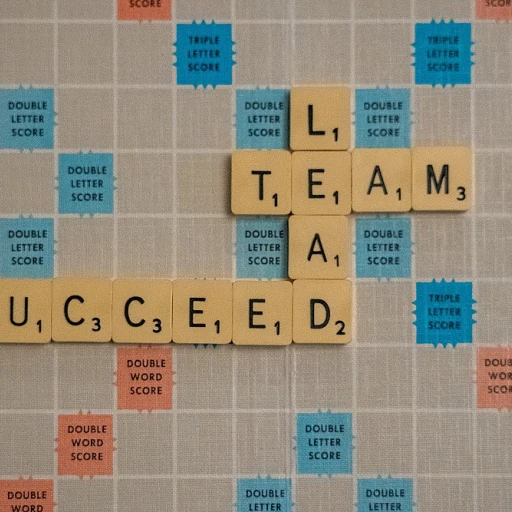
Understanding High Potential Employees
Recognizing Exceptional Talent in the Rail Industry
High potential employees are pivotal for any organization's growth and strategic evolution, particularly in the complex engagement of the rail industry. These individuals demonstrate extraordinary capabilities and an exceptional drive to excel in high-demand environments. Understanding their unique characteristics can lead to significant contributions across various sectors, including project management, railroad operations, and transportation logistics.
The Characteristics of High Potentials
High potential employees exhibit several noteworthy traits, such as:
- Adaptability: Their ability to adapt to new challenges, whether in rail design solutions or construction management, sets them apart.
- Leadership Skills: Emerging leaders often show promise, crucial for roles involving strategic planning and rail infrastructure development.
- Drive for Excellence: Whether overseeing team projects in supply chain operations or managing complex rail transport networks like Network Rail, their commitment to excellence is unwavering.
- Innovation and Creativity: These individuals bring fresh perspectives that benefit long-term projects in areas like high-speed rail and rolling stock development.
The Benefits of Identifying High Potential Employees
Identifying these high achievers is beneficial not only for workforce morale but also for long-term organizational success. Senior partners and managing directors can leverage their potential to enhance the productivity of consulting services or rail consulting projects. Furthermore, their visionary mindset is essential for future-proofing projects which require innovative problem solving and proactive risk management.
Organizations aiming to maximize these talents, particularly in North America, must focus on investing in tailored training and consulting services that meet the unique needs of their high potential employees. This understanding is pivotal for deploying rail consulting services effectively, as well as ensuring consistent growth and safety in rail operations.
For more insights on how organizations can navigate remote work training and development challenges, visit our comprehensive guide.
The Role of Train Consulting in Talent Development
Harnessing the Expertise of Train Consulting
In the competitive realm of talent development, train consulting assumes an instrumental role, particularly for those pegged as high potential employees. With the rail industry renowned for its complex challenges, the risk of underdeveloped potential is high, but train consulting can offer effective solutions.
The core of train consulting lies in its ability to tailor services to facilitate skills development for individuals and teams. Drawing on expansive expertise across rail operations, project management, and transportation logistics, consultants offer a comprehensive understanding of industry-specific needs.
Training Programs Designed for Rail Success
Train consulting isn't just about delivering generic training sessions. Instead, it’s about designing customized programs that respond to the nuances of the rail industry. Considerations range from rolling stock projects to complex rail infrastructure undertakings in sectors like high speed rail. Consulting services need to align with broader strategic goals to maximize potential.
Strategic Planning and Long-Term Development
One of the strengths of rail consulting lies in strategic planning. Effective consulting considers the long-term development of high potential employees, using construction management techniques, safety protocols, and Lean methodologies to guide their journey. This outlook ensures not only the enhancement of individual skills but also the improvement of overall operations within teams.
Partnerships Across North America
Leveraging networks like Network Rail further amplifies the benefits of train consulting. In North America, establishing partnerships with senior partners and managing directors across regions, such as San Diego, can provide critical insights and contribute to a robust supply chain for talent development.
Overall, the effectiveness of train consulting in the rail industry rests on its ability to deliver expert solutions that align with operational and safety standards, ultimately enabling high potential employees to thrive within the rigors of rail transport.
Identifying the Right Training Programs
Crafting Customized Training Programs for High Potentials
Identifying the right training programs for high potential employees requires an in-depth understanding of several factors. Each organization, rooted in its unique culture and business goals, must align its talent development initiatives with its overarching strategic planning objectives. To successfully achieve this alignment, the role of rail operations and consulting services cannot be underestimated. Comprehensive Needs Analysis A thorough needs analysis is paramount. This involves collaborating with project management teams, consulting services, and industry experts to discern specific training requirements. Developing future leaders hinges on uncovering gaps in current capabilities and designing solutions that are tailored to bridging these discrepancies. Understanding Industry Nuances The rail industry, including sectors such as railroad, transportation logistics, and rolling stock management, poses both challenges and opportunities for high potential employees. Leveraging rail consulting expertise ensures that training programs are relevant, actionable, and aligned with industry standards, particularly in rapidly evolving fields like high speed and rail infrastructure operations. Customization over One-Size-Fits-All It's crucial to design training programs that not only enhance safety and operational efficiency but also cater to individual career aspirations. Tailored programs, supported by senior partners and experienced managing directors, are more likely to resonate with high potentials, enhancing both their immediate and long-term development. Building a Collaborative Environment Forming a dynamic team that includes experts from network rail, construction management, and strategic planning ensures that training initiatives are robust and comprehensive. Collaboration across departments and with external consultants fosters an environment where high potential employees can thrive. Ultimately, identifying and designing the right training programs entails a collaborative and thoughtful approach. With a focus on safety, efficiency, and long-term development, organizations can successfully enhance the capabilities of their high potential employees, ensuring they are well-equipped to meet future challenges in rail transport and beyond.Overcoming Challenges in Train Consulting
Challenges Faced in Implementing Effective Training Programs
Understanding and implementing effective consulting programs for high potential employees can be fraught with challenges. To successfully develop talent, overcoming these hurdles is crucial.- Complex Industry Needs: The rail industry, offering a variety of consulting services ranging from rail operations to safety management, requires tailored training solutions. Project management and strategic planning must align with the specific operational demands of rail infrastructure and transportation logistics. Professionals need to design training that addresses this complexity effectively.
- Balancing Diverse Expectations: Balancing the expectations of various stakeholders in rail consulting projects can be daunting. Operations teams, managing directors, and senior partners often have differing objectives. Achieving consensus on training needs and focusing on long-term development requires diplomatic skill and expertise.
- Adapting to Technological Advancements: With the increasing integration of high-speed rail and cutting-edge technologies in rolling stock, staying updated with industry advancements is essential. Training programs must continuously evolve to incorporate these advancements, ensuring the workforce is equipped to handle sophisticated rail systems.
- Cultural Differences and Global Teams: Managing large, multinational teams across North America and other regions entails understanding and adapting to cultural differences. Consulting services need to create inclusive training programs that are beneficial across different cultural backgrounds.
- Evaluating Training Effectiveness: Measuring the success of training initiatives in developing high potential employees can be challenging. Metrics like employee retention post-training and improved performance in rail transport projects help gauge the effectiveness of training consulting efforts.
Measuring the Impact of Training on High Potentials
Evaluating Training Efficacy and Outcomes
Assessing the impact of transportation logistics-focused training on high potential employees is crucial for ensuring long-term success. Both rail industry professionals and consulting services must adopt clear metrics and methods to evaluate the effectiveness of the programs on their teams.
- Performance Metrics: Key performance indicators (KPIs) tailored to specific roles in rail operations, project management, and railroad safety can help gauge improvement. These might cover anything from increase in project efficiency, cost savings, or enhanced safety protocols to management advancements in rail infrastructure.
- Feedback Loop: Creating an open line of communication between trainers, participants, and the consulting firm enables continuous refinement of the services offered. Evaluating participant feedback can provide insights into what contributes to successful train consulting.
- Return on Investment (ROI): Much like high-speed rail projects, calculating the tangible and intangible benefits of training investments against the cost helps validate the program's value. As operations become more competent and strategic planning more effective, this creates value for both the organization and its clients.
- Skill Application: It's essential to identify whether skills learned translate into practical solutions in network rail projects and rolling stock management. Consulting services should focus on real-world application to guarantee that employees maximize their potential.
- Long-Term Development: Regular assessments can align with long-term company objectives. Talent development, akin to construction management projects in regions like North America and San Diego, benefits from strategic alignment and a focus on future growth.
Emphasizing systematic evaluation ensures that training programs not only support immediate project needs but also contribute to retaining high achievers, preparing them for future leadership roles in the rail industry.
Retaining High Potential Employees Post-Training
Strategies for Retaining Top Talent Post-Development
Ensuring that your high potential employees remain engaged and committed after undergoing extensive training and development is crucial. Retention is not merely about keeping these individuals but also about maximizing their contributions to your organization's success. Here are some strategic measures for effectively retaining high potentials:- Continuous Development Opportunities: After completing structured training consulting, it is important to provide further growth opportunities. Encourage involvement in new projects, leveraging skills acquired in rail operations, safety, and strategic planning. Emphasizing roles in construction management, transportation logistics, or project management can further solidify their engagement.
- Market-Competitive Compensation and Benefits: High potentials are usually well aware of their worth in the market. Providing competitive compensation packages, which could include benefits such as high speed rail travel passes or a focus on safety and wellness programs, can improve loyalty and satisfaction.
- Create Leadership Paths: Design clear career progression paths in rail industry projects. Whether it involves taking on senior partner responsibilities, management roles in train consulting services, or joining decision-making teams, demonstrating a future within the organization is a powerful retention tool.
- Alignment with Organizational Goals: Aligning personal aspirations with the company's long-term strategic goals, such as involvement in rolling stock management or railroad infrastructure development projects, can increase engagement and motivation. Facilitate their understanding of the wider impact of their role in the rail infrastructure network.
- Foster a Supportive Work Culture: Encourage teamwork and a supportive environment within your consulting services group. Promote knowledge sharing and collaboration between talented individuals working on various rail transport and network rail projects across North America, reinforcing a sense of belonging.
- Recognition and Reward Systems: Implement a consistent recognition and reward system for those showing outstanding performance post-training. Whether it be a public acknowledgment of accomplishments in the rail consulting industry or modest perks like exclusive access to industry learning events in San Diego, these gestures can greatly enhance retention.













